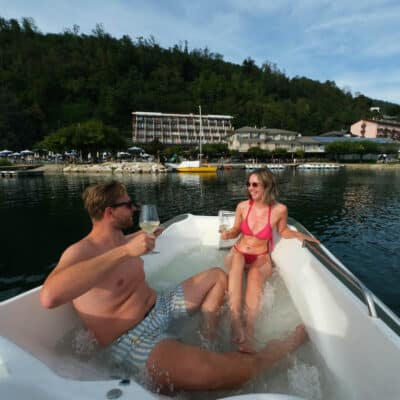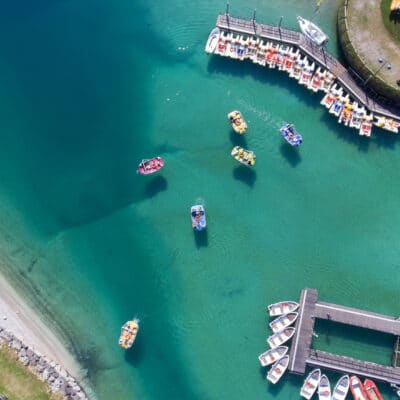Fertilizers, pesticides, environmental disasters, plastic waste that turns into small fragments and is ingested by fish, poisoning them and us when that fish is on our plates alongside a (hopefully) harmless salad.
The sea has always marked the rhythm of our lives and our work. Around it civilisations have developed and cultures, novels, films and wonderful places to visit were born. Today, that same sea is asking us for help as its pollution has become a worldwide emergency with which we must deal. If we look at the figures, as the WWF reports, 80% of the pollution in the sea is produced on land, by human action that affects the environment: plastic cups thrown into the waves, shopping bags, masks, herbicides, illegal industrial discharges… It has been estimated that every year between 4.8 million and 12.7 million tons of plastic waste end up in the sea.
We should also consider the impact of emissions caused by industrial activity: amongst the major contributors to climate change, CO2 emissions gradually increase the temperature of the planet and, with it, the level of the sea. This triggers a domino effect, with changes to the salinity and to the PH of the seawater which, in turn, affects the natural habitat of different species, threatening their very existence. The Mediterranean, due to its rich biodiversity, is one of the most important ecosystems in the world, an ecosystem of which we should be the guardians rather than the masters.
Wave Motion: Another Form of Pollution
There are also other forms of pollution. For example, the one linked to wave motion: the increase in water traffic, often caused by old petrol engines, has destructive effects on the surroundings. In Venice, for instance, the motion of the waves continuously erodes the buildings, risking to damage architectural works protected by UNESCO and the lagoon ecosystem. It seems clear that, in this dramatic scenario, all of us are called to act and change our habits, in everyday life, but also when we travel.
Polluted Sea. What Can We Do?
It is simple: we can make a choice. Previous generations were unaware and considered nature as a resource that could be exploited without hesitation. We now know that is not he case. We all must do more: starting from private citizens who don’t yet separate waste, or use the car for short distances, to companies that have not yet understood all the benefits (including monetary ones) of the circular economy. In short, it is time for a change at every level of our society.
Here at GardaSolar, protecting the environment is our primary goal. It is our job and our mission, and we do that through the development and the constant research of new electric technologies that can change the way people travel, for work or leisure.
Electric boats, state-of-the-art electric outboard motors, sustainable vehicles for tourism use. It’s an exciting journey that pushes us to do our best every day. Take the issue of wave motion, which is so important for coastal realities and their ecosystems. In these months, we are developing with FAP – an artisan shipyard in Venice – a new model of electric boat which is made of wood. Designed – just like our GOGO Boat – with a particular hull, specifically conceived to reduce the impact with the waves. Not to be underestimated is the quietness of the electric motor that, by reducing noise pollution, contributes to more hospitable and welcoming ecosystems, for us and for the fauna that lives there.
So, there are solutions. All we need to do now is implement them through our choices. Here at GardaSolar we are committed to informing tourism entrpreneurs about all the opportunities, ethical and economic, of investing in electric mobility, as we describe in this article about return on investment.
Respecting the environment: the route that can save the sea and us with it. Discover our world and how electric mobility can transform your business on www.gardasolar.com






